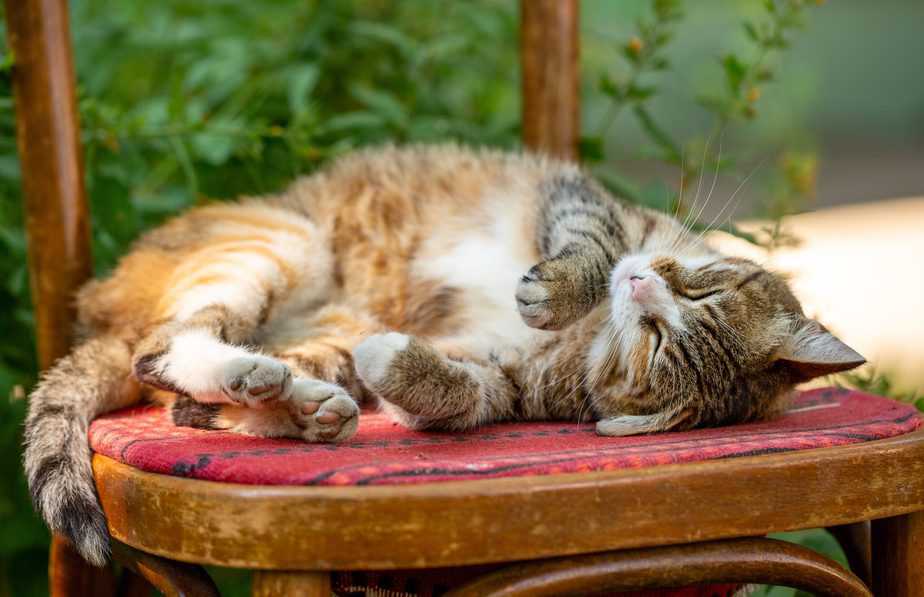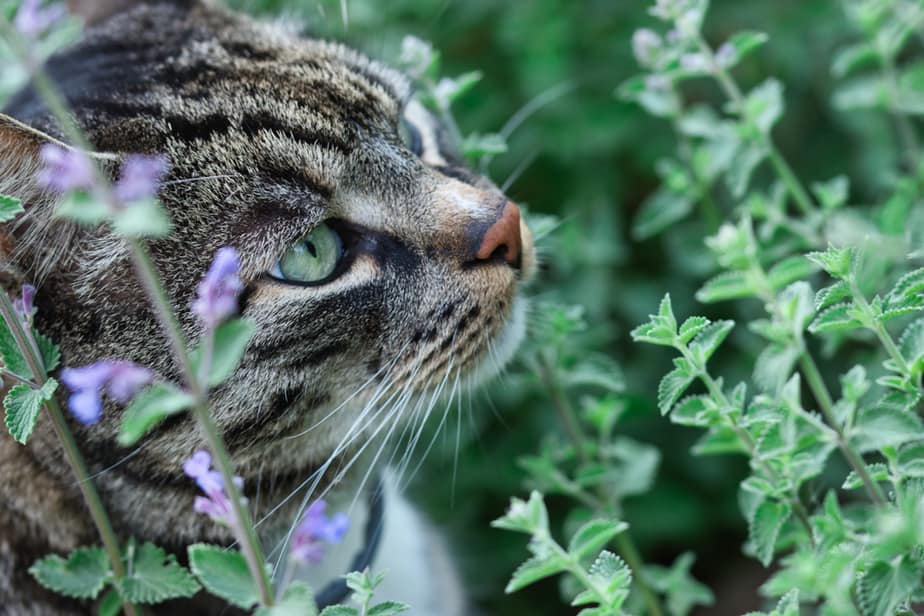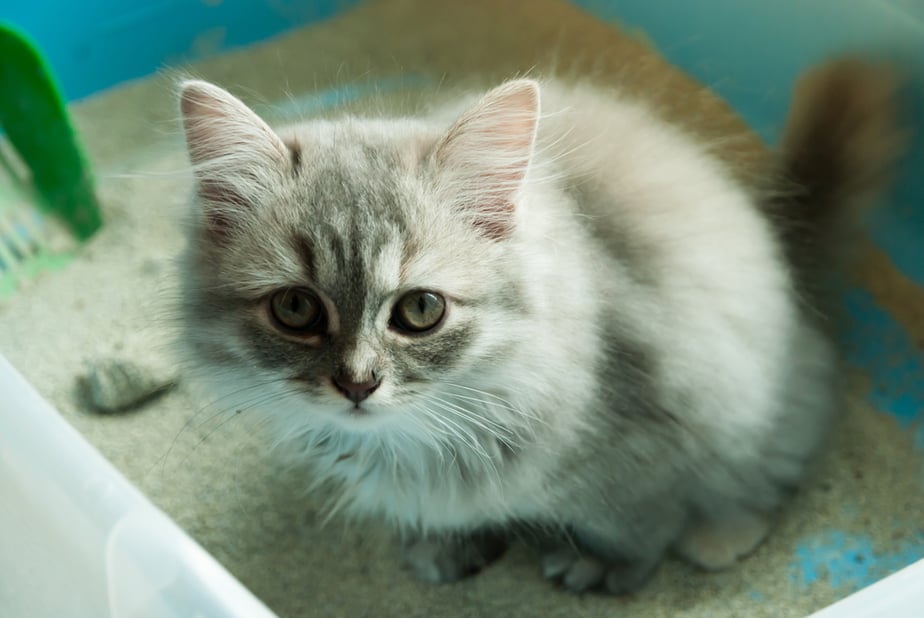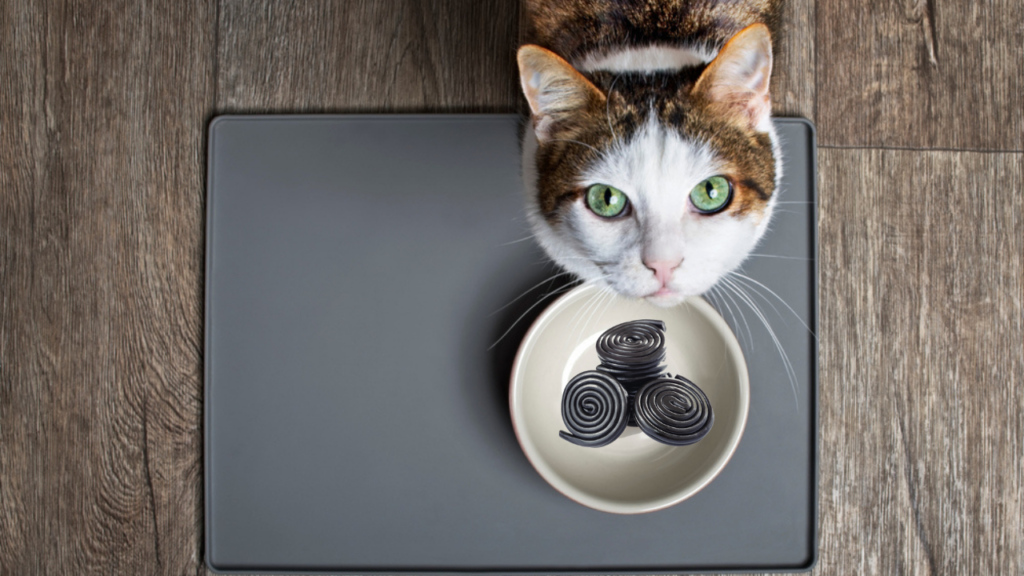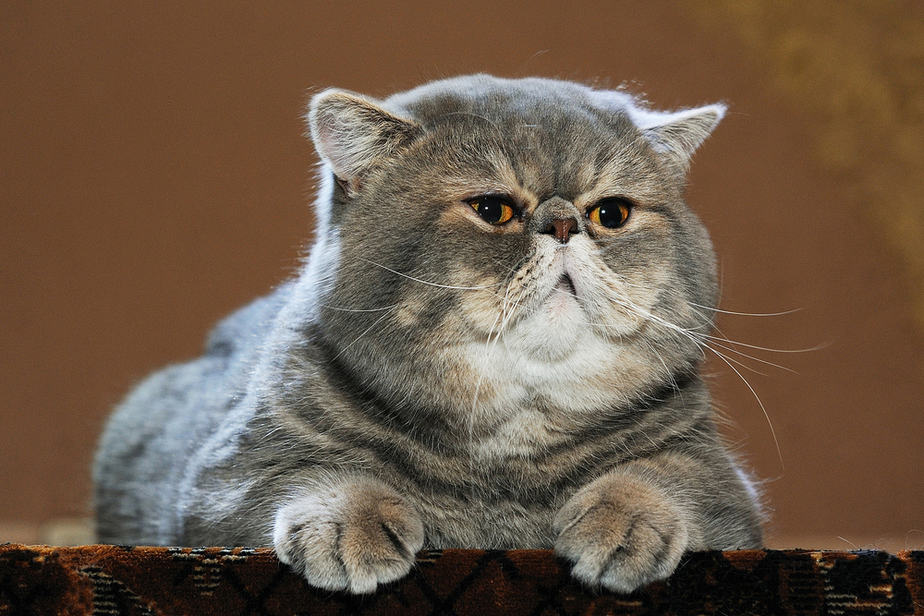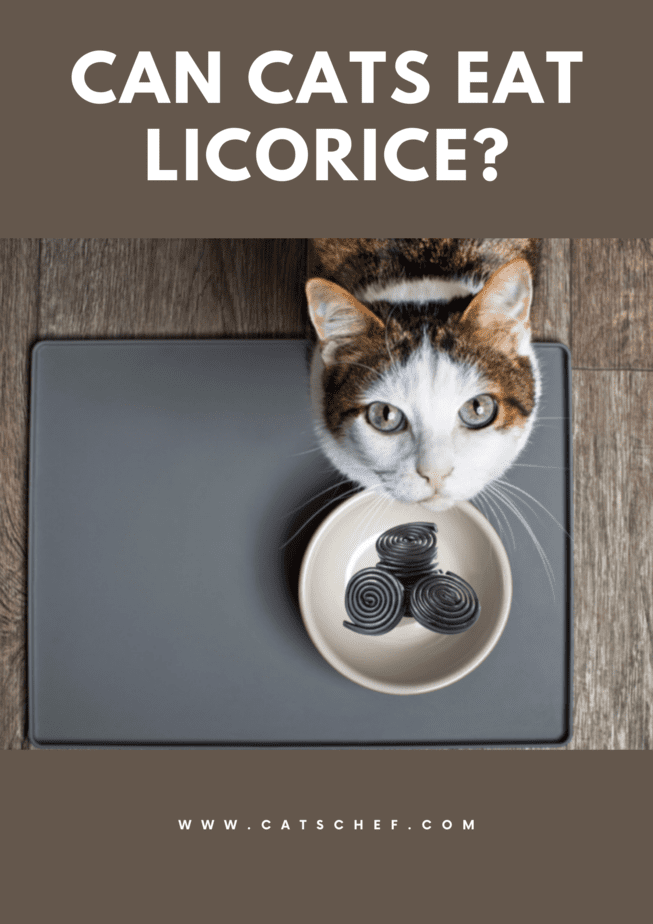📖 Table of Content:
Plants are found in almost every household because they’re easy to maintain and can serve a great purpose. However, our little mischievous friends can shorten our plants’ lifespan. Some can even end up eaten and then you start to wonder if it’s dangerous. Can cats eat licorice, for example? And what about licorice-flavored treats?
It’s not uncommon for our furry companions to show interest in flowers and plants. But, sometimes they can show too much interest, for both their own and the plants’ good. Some plants are not to be messed with, but cats don’t know that.
Fortunately, the only bad thing that can happen if your cat gets her paws on licorice is the mess she makes. Although you won’t be thrilled about it, you can relax knowing your little pe(s)t won’t hurt herself while trying to destroy her “enemy.”
Thankfully, licorice isn’t one of the plants that will fight back. We know cats love jumping and climbing trees. If you have licorice in your garden, it could grow up to one meter. This could be the perfect playground for your furkids.
Can cats eat licorice leaves and roots?
Licorice isn’t poisonous to felines, but this is still a debate. Many cat owners who have a licorice plant wonder if felines can eat it if they ever decide to just go for it. Some argue they shouldn’t even though it isn’t toxic.
However, others disagree with that, claiming that licorice holds many benefits to both humans and cats. This herb is still in the gray area when it comes to feeding it to your cat.
Some leaves and roots can be poisonous to felines, so we understand your concern. Especially if you have a curious baby who keeps reminding you of that old saying about cats and their curiosity…
Potential health benefits of licorice
Licorice is healthy for humans and the same can be said for cats. If you’re growing this herb in your garden, you may notice it slowly starting to shrink. You’re baffled how it’s possible because you’re caring for it the best you can!
Well, it turns out that cats love the taste of licorice root. Weirdos, right? She was probably nibbling on this plant without you noticing every time she ventured into the garden.
We know this may confuse you. So let’s break it down in order to answer whether cats can eat licorice and what it does for them.
Source of cortisone
Licorice holds many health benefits, and one of them is cortisone. It has anti-inflammatory properties and helps to prevent allergic reactions.
If you have a feline buddy that’s prone to itchy skin, licorice may be the right medication for her. Cortisone can aid in digestion issues and can be used as a treatment for respiratory problems in felines. In humans, cortisone is used for treating skin and lung conditions.
Licorice can help with arthritis
If your cat has arthritis or just joint problems in general, licorice may help with that. Due to its antioxidant and anti-inflammatory properties, it’s known to help reduce joint inflammation.
This can especially come in handy for obese felines that have added pressure on their joints. Besides antioxidant and anti-inflammatory properties, licorice is known to have antiviral, antibacterial, and anti-fungal properties.
These properties can keep your cat away from any viruses and bacteria. They will help her strengthen her immune system in order to fight off any uninvited diseases in her body.
A natural laxative and diuretic
Sometimes, our furry friends can use a bit of help when using the litterbox. If your cat tends to overeat or she has access to carbs, she may experience some constipation.
This is why felines need certain amounts of fiber to regulate their digestion. If this won’t help, then a bit of licorice might do the trick. Licorice is a natural laxative that can help her with the problem of constipation.
Next to that, it’s also a natural diuretic, helping the body get rid of any excess fluid and salt. Licorice can be extremely helpful in this case because cats aren’t huge water drinkers. By drinking enough water, the body gets rid of unnecessary fluids.
Because our four-legged companions don’t fancy water, they need some help with that. It’s especially helpful if your cat has accidentally consumed salty foods. So, not only can cats eat licorice, but it’s extremely beneficial in some cases.
What can go wrong?
You know how all the good stuff has to be ruined eventually? Well, even with all of the potential health benefits, licorice has some downsides. It contains glycyrrhizin that works as an emulsifier.
Can cats eat licorice because of this compound? Well, they can, but this compound tends to lower potassium levels. This mineral is important because it improves nerve and muscle function in felines.
Potassium deficiency in cats can lead to some mild, common issues like vomiting, diarrhea, and lethargy. But, if left untreated, the lack of potassium can have some more severe effects like loss of muscle mass and general weight loss.
Can cats eat black licorice?
What better way to get some sugar than to grab a bag of candy! Every once in a while we need something sweet and sugary, but are these cravings seen in cats too? Can cats eat black licorice, for example?
We know candies aren’t the healthiest food out there, but we just can’t seem to resist the sweet taste. Especially when it comes to kids – they go crazy over a bag of candies.
However, we tend to avoid eating too many sweets because we all know what happens. If we give in to that sweet taste, the pounds will just keep adding, and pretty soon, our clothes become tighter.
You may have caught your furball trying to steal some of your licorice. However, cats and candy don’t go hand in hand. There is a series of misfortunate events that can occur if your pet eats these sugary sweets regularly.
Black licorice is made from the extract from the roots of licorice. Even though this herb can provide some beneficial supplements to cats, the same can’t be said about black licorice.
Sugar content
The amount of sugar found in candies such as black licorice is alarming for humans, let alone cats. While this is exactly what attracts us, our felines will disagree with us.
Our pets don’t have a sweet tooth, which means they lack the taste buds that allow them to pick up the sweet flavor. Also, carbs are an unnecessary part of their diet, so evolution took care of that. Your little friend is more pawsome than you thought!
Sugar consumption can have a negative impact on your cat/s health. Especially on her dental health as it could cause tooth rot. Besides, eating carbohydrates can cause her to gain weight, which means strain on her joints.
A long-term health issue could develop from eating sugar, such as diabetes. Other underlying diseases are also seen in felines as a culmination of excess carbohydrate intake.
Can cats eat black licorice? What about artificial sweeteners?
Apart from sugar, candy contains artificial sweeteners. Black licorice is no exception and can have high amounts of it. This is a reason for concern because they can be detrimental to your cat’s health.
One sweetener that’s particularly dangerous to felines is xylitol. This artificial sweetener is common among many candies, but the thing is, it’s highly poisonous to cats.
It’s easier for big companies to use cheaper, artificial sweeteners than to extract natural ones. Xylitol is one of the big reasons you shouldn’t feed any candy to your cat, be it gummy bears or black licorice.
Glycyrrhizin toxicity
Glycyrrhizin, also known as glycyrrhizic acid, is a molecule found in black licorice. This chemical gives the candy its distinctive flavor, but it also contributes to its toxicity.
Don’t worry if your cat had some of it, but make sure it doesn’t happen again. This compound can lead to a condition called hypokalemia. It occurs when glycyrrhizin lowers the levels of potassium by disturbing the electrolytes in your feline’s body.
This compound can also lead to high blood pressure and pose a threat of certain heart diseases. One of the reasons cats cannot and should not eat black licorice is because they can develop heart arrhythmia.
Summing up…
So, can cats really eat licorice? While the root of licorice may have certain health benefits for cats, black licorice is a whole different story. Refrain from feeding your feline black licorice, as it can be extremely harmful to her health.
Licorice herb can be used in many ways to help your fluff with some medical conditions. However, we don’t advise incorporating anything that isn’t cat-appropriate, especially without previous consultations with your vet.
Related post: Can Cats Eat Twizzlers? Will They Make Your Cat Sizzle?
